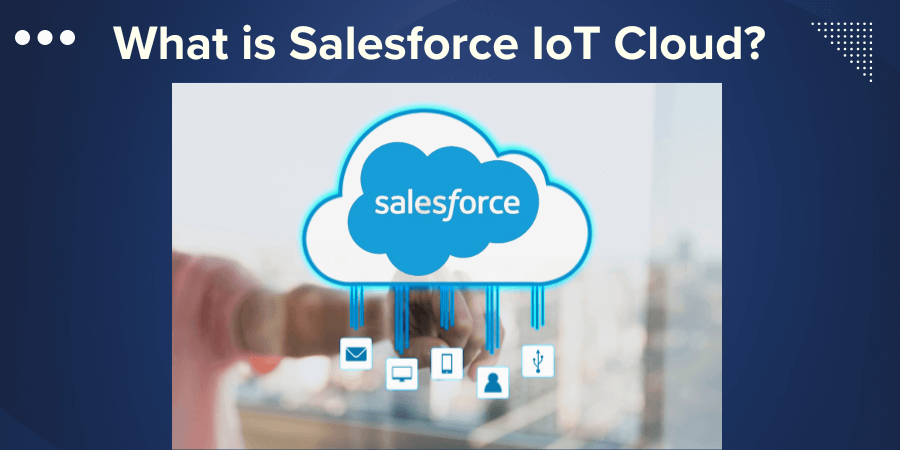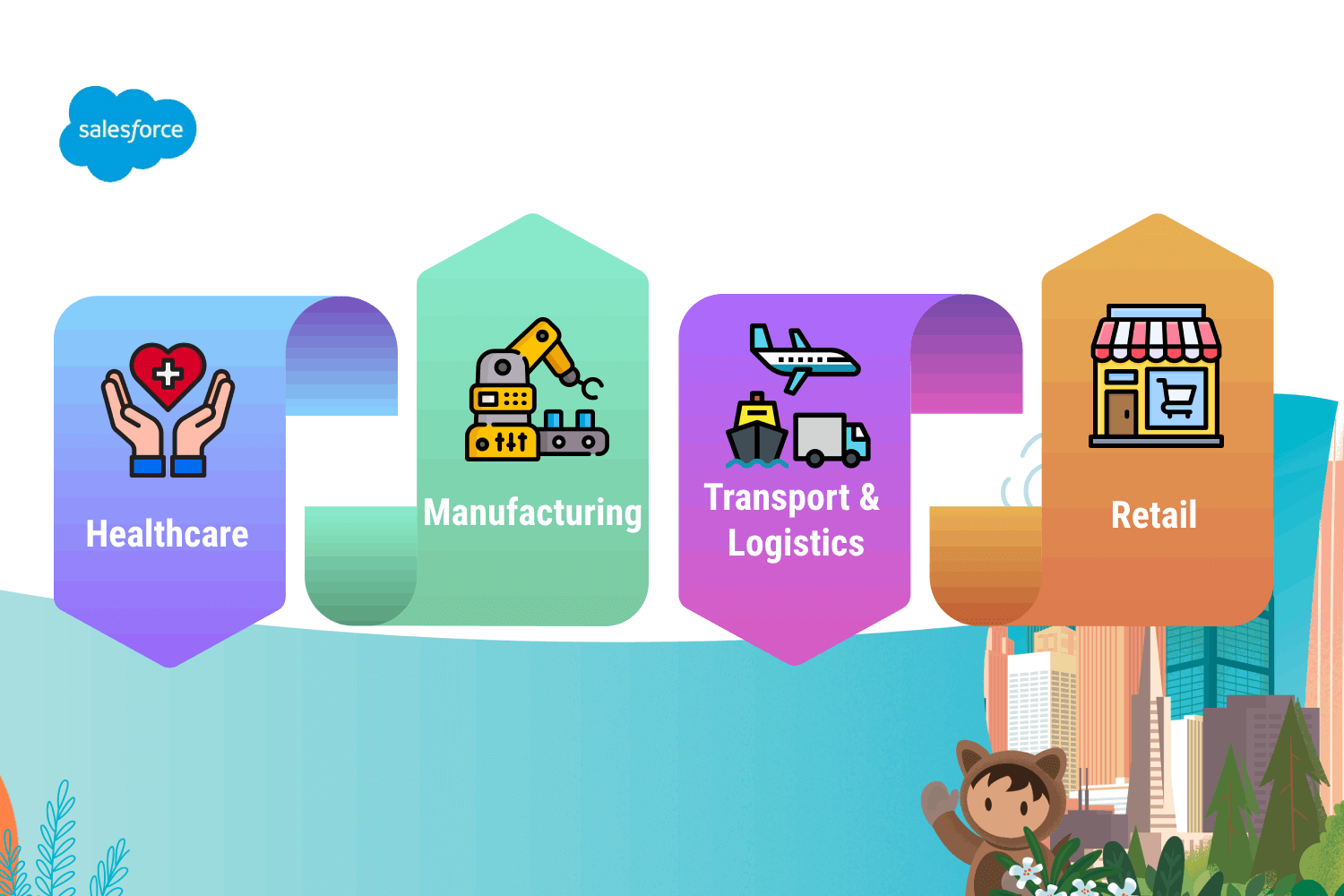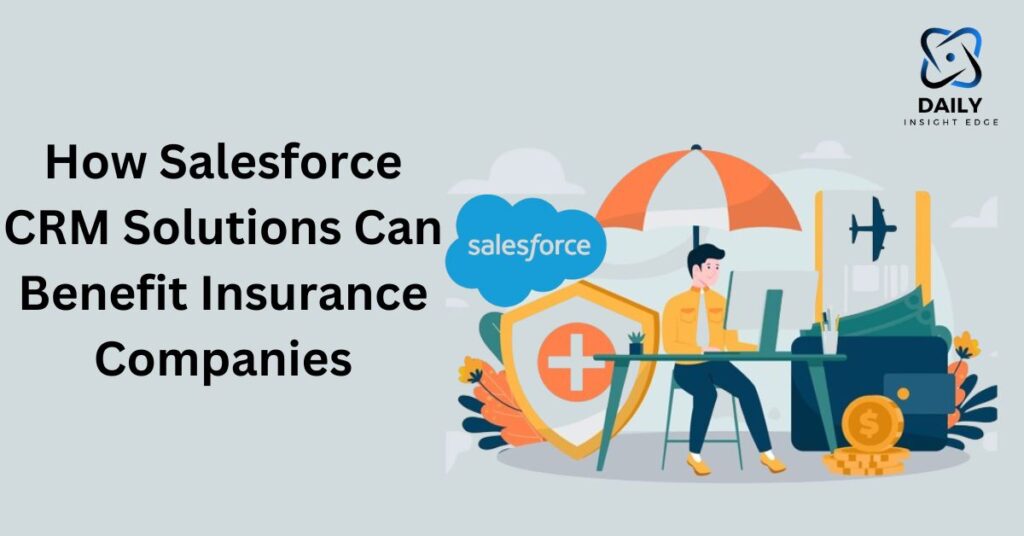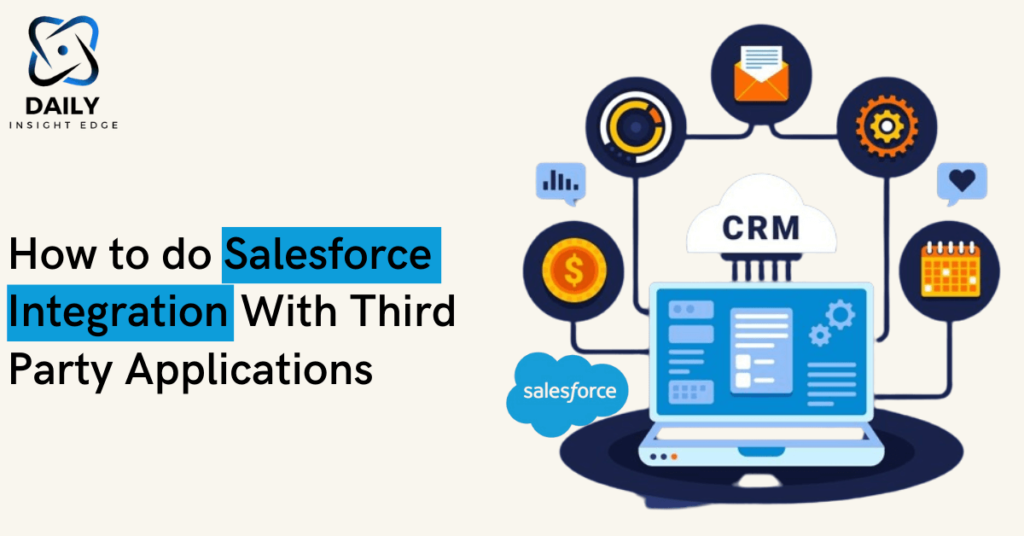Hey Siri! Call Max.
Or
Alexa, play songs on Spotify.
Do they function on your command? A whole platform connects with the cloud and communicates through the internet to deliver intelligent experiences. This is known as the Internet Of Things or IoT.
The Internet of Things (IoT) is transforming the IT industry by allowing physical devices with electronic components to connect to the Internet. This innovative technology facilitates seamless communication between devices, leading to smarter and more efficient systems.
Fortunately, Salesforce’s IoT Cloud stores all the IoT data. It is powered by a Thunder engine that collects data from various devices, websites, etc, and processes real-time information.
But what exactly does Salesforce IoT Cloud do, and how adopting it is beneficial for your business? Explore everything here in this blog.
What is Salesforce IoT Cloud?

Salesforce IoT empowers businesses can establish direct communication with connected devices, enabling context-based alerts and actions. This facilitates proactive and personalized customer interactions, enhancing overall customer engagement and satisfaction.
Integrating IoT data within the Salesforce ecosystem empowers businesses to deliver exceptional customer service and create meaningful connections with their audience, driving long-term loyalty and success.
An IoT System comprises the below-mentioned components:
- Things: it includes Physical devices that should be connected to the internet and enable data extraction.
- Connectivity: Connecting things via the internet helps in talking with each other.
- IoT Platform: For seamless management of IoT assets.
- Business applications: A CRM system integrating IoT infrastructure to gather data and initiate meaningful alerts and actions.
Features of Salesforce IoT Cloud
Networking giant Cisco predicts that the Internet of Things will create growth opportunities valued at $14.4 trillion globally over the next decade. Also, it will impact society five to ten times compared to the internet.
But with the help of the following features, you can synergize your business with the capabilities of Salesforce IoT Cloud Implementation:
- Data Ingestion: Salesforce IoT effortlessly collects data from various sources, including sensors, wearables, websites, and applications, ensuring comprehensive data ingestion.
- Data Processing: With a user-friendly point-and-click interface, IoT Cloud simplifies listening to data, enabling real-time analysis and efficient data processing. It becomes easier for users to filter, transform, and aggregate data. This also helps define rules and regulations by considering that data.
- Output Connectors: Output connectors in Salesforce IoT streamline the distribution of event data to various destinations, ensuring seamless compatibility with different systems by translating data into specific formats. This simplifies the process of sharing data, promotes interoperability, and maximizes the utilization of valuable information across multiple platforms.
- Integration with Salesforce CRM: A major advantage of Salesforce IoT is how easily integration with Salesforce CRM and other Salesforce tools. Businesses can gain a complete picture of customer interactions and preferences by linking IoT data with customer information in Salesforce CRM.
- Third-Party Integration: Salesforce IoT Cloud is highly customizable and integrates with third-party applications, allowing businesses to tailor their IoT solutions to specific business needs and requirements.
- Einstein AI: IoT Cloud collects data from different sources and gives businesses actionable insights automatically, all thanks to Einstein AI. This enables businesses to be more predictive and proactive in understanding and interacting with their customers.
- Reporting & Data Analytics: Salesforce IoT offers robust reporting and analytics tools, empowering users to analyze their data effectively. Visualizing the data allows users to easily identify patterns and trends, gaining valuable insights for informed decision-making.
- Security and Compliance: Salesforce Internet of Things Cloud pays strong attention to security and compliance to protect sensitive IoT data and ensure constancy to regulatory standards. These measures are designed to safeguard data throughout its lifecycle, from collection to storage and processing. Salesforce IoT supports various compliance frameworks, including GDPR and HIPAA, which allow organizations to handle IoT data while meeting strict regulatory requirements.
Industries Uses for Salesforce IoT Cloud

Salesforce IoT has broad applications across various industries. Below is an overview of the industries that stand to benefit significantly from the Salesforce Internet of Things:
Healthcare Industry
In the healthcare industry, Salesforce IoT Cloud has various use cases such as, Imagine a smart medical device attached to a patient, continuously monitoring their vital signs. Devices like smartwatches and fitness bands exemplify the use of IoT technology in healthcare. These IoT-powered medical devices can collect precise real-time data and immediately transmit it to healthcare professionals. Utilizing Salesforce IoT, doctors can easily analyze patient data, enhancing the quality of care they provide.
Manufacturing Industry
In the manufacturing industry, machinery and equipment are critical. Access to real-time data about the status of these assets can significantly increase business performance. IoT Cloud allows manufacturers to visualize their processes centrally, providing an understanding of potential breakdowns to minimize downtime and boost efficiency. Moreover, the IoT Cloud aids in optimizing quality control. By incorporating IoT sensors into products, data can be gathered and analyzed to confirm the products meet quality standards.
Transport & Logistics Industry
IoT technology is revolutionizing the transportation industry. By using embedded sensors, predictive maintenance, and real-time fleet information, businesses in transportation and logistics become more structured. IoT devices gather data, and Salesforce IoT turns this data into actionable insights. This makes fleet management easier and more precise, providing real-time information. Salesforce IoT gives fleet managers the intelligence they need to predict and address problems before they escalate, ensuring smooth operations.
Retail Industry
In the Retail industry, stores can increase their operations with sensors and IoT retail devices, collecting data throughout the entire shopping lifecycle. By using IoT Cloud, retailers can utilize this data to create a seamless shopping experience for customers. Salesforce IoT cloud implementation in the retail industry also leads to improved inventory tracking.
Retailers gain a detailed view of the supply chain, from the factory to the customer’s hands. IoT technology allows for real-time monitoring of goods’ conditions and tracking. Additionally, IoT simplifies the analysis of consumer behavior. By collecting data from beacons, sensors, microphones, and in-store cameras, IoT Cloud helps businesses visualize customer behaviors effectively.
Reasons to use Salesforce IoT Cloud for your business
The following reasons will make you realize the worth of using the Salesforce IoT in your business:
1. Discover Customer Behavior
Salesforce IoT Cloud‘s Customer Context feature stores intelligently and analyzes historical actions and behaviors with machine learning, enabling real-time decision-making. Combining customer history, location, service history, and IoT device data provides a holistic view of the situation, empowering you with valuable insights into the current state of affairs.
This comprehensive understanding helps you make informed decisions and proactively optimize business outcomes
2 Explore New Business and Pricing Models
By gathering and analyzing data from interconnected devices, organizations acquire valuable insights into customer utilization of their products and services and their efficacy. This data enables organizations to identify opportunities to optimize business operations, implement cost-effective collaboration models, refine customer usage plans, and even uncover new and lucrative business models.
With a deeper understanding of customer behavior and product usage patterns, organizations can drive innovation, enhance customer satisfaction, and unlock new avenues for growth and success.
3 Low Code Technology
By using Salesforce IoT Cloud’s low-code approach, executives can take control of their IoT processes without engaging IT. Orchestration rules can be designed in a customer journey-like manner, where responses and triggers are set up, and the IoT takes care of the complex processes.
These IoT actions seamlessly transfer data to key Salesforce platforms like Marketing Cloud and Service Cloud, automatically generating actionable items.
The low-code strategy reduces costs in various areas and enables rapid testing of business ideas without the need for coding expertise. This streamlined approach puts the power of IoT in the hands of business users, driving efficiency and innovation.
4 Data Connected with Customer Experience
Leveraging data from customers’ connected devices can significantly enhance customer management. Control applications can send service notifications based on real-time sensor data with a rule-based approach, comparing them with stored values to proactively notify users of potential service needs.
Machine learning-based controls can continuously update the IoT system using customer device data. For instance, Salesforce Einstein Analytics can identify usage patterns that may cause product damage and inform users when their actions could have adverse effects.
This data-driven approach ensures proactive customer support and enables users to optimize product usage for better outcomes.
5. Lead Generation & Customer Acquisition
Salesforce IoT Cloud revolutionizes sales operations by providing insights beyond traditional B2B processes. It enables the Sales team to identify outdated products, upcoming warranty expirations, and underperforming items. This information drives improvements in Salesforce processes and facilitates targeted customer engagement. Customized offers can be created and delivered before the warranty ends or when product performance falls short.
Automation rules trigger actions based on performance metrics, ensuring a timely response from Customer Support and Sales teams. The collected data enables predictive analytics and customer behavior analysis, enhancing customer retention and acquisition. Automation simplifies and streamlines these processes with IoT for optimized sales performance.
6 Connected Customer profiles
Salesforce IoT enables the creation of comprehensive customer profiles linked to customers and products. Through this connection, incoming data from devices owned by customers can be integrated, providing valuable insights and opportunities. For example, suppose you own a windmill with turbines connected to the Salesforce IoT Cloud. In that case, you can easily monitor your windmill’s and individual turbines’ performance through the CRM on your mobile or desktop.
The IoT capabilities allow the windmill to adjust turbine performance based on weather conditions obtained from the internet. Additionally, equipment failures are automatically detected and linked to the relevant department for prompt resolution. Complaints can be filed, maintenance can be scheduled, and work orders can be generated, all facilitated by the integration between IoT Cloud and other Salesforce Cloud platforms.
7 Ability to Scale
The scalability of the IoT Cloud is unmatched, effortlessly handling large data volumes to meet evolving business demands. Its adaptability makes it an ideal solution for businesses of any size.
Conclusion
Whether you are in a business that deals in manufacturing, transportation & logistics, retail, or healthcare, the need and implementation of Salesforce IoT Cloud are a little hard to evaluate. According to Kevin Ashton, “The Internet of Things has the potential to change the world as the Internet did, could even do so more so”
This highlights that in the coming time, you will get to decide how your company will adapt to future changes. If you still have some questions, connect with a team of Salesforce experts or a Salesforce IoT Implementation Partner. They will help you determine your requirements and show you how Salesforce IoT Cloud can bring digital transformation to your business model.
Frequently Asked Questions
1. What is the pricing for Salesforce IoT Cloud?
Salesforce IoT pricing is based on the number of events processed, rather than the number of users. Typically, the cost starts at $6000 per month. For a more detailed understanding of the pricing, it’s advisable to consult with a Salesforce IoT implementation partner.
2. How does IoT Cloud integrate with other Salesforce tools & products?
You can integrate Salesforce IoT Cloud with other Salesforce tools and products, such as Sales Cloud, Service Cloud, and Marketing Cloud. This integration gives businesses a unified view of their data, offering a comprehensive approach to managing customer relationships.
3. Can Salesforce IoT be customized for specific business needs?
Yes, Salesforce IoT Cloud is customizable. Organizations and businesses can modify the platform to meet their needs, create custom rules and actions, and integrate it with their existing systems and workflows.
4. Salesforce IoT Cloud is Secured?
IoT Cloud is built with robust security measures to protect data. It includes features such as data encryption, secure authentication, and compliance with industry standards to ensure the safety and privacy of your data.

Eliana Cooper is a highly analytical and results-oriented SEO Analyst and Digital Marketing Professional. She is an expert in blogging and content marketing, always sharing the newest trends and innovations at Daily Insight Edge.



